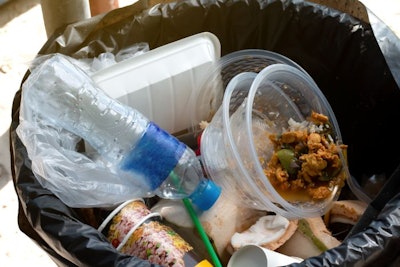
It is difficult to remain positive as the novel coronavirus (COVID-19) pandemic continues to plague the meat and poultry industry, but I believe I have discovered one thing good that may come from all of this.
People should now have a greater appreciation for the food on their plates, particularly when that food came from an animal.
‘A serious food waste issue’
As Tyson Foods Chairman John Tyson recently wrote, “the food supply chain is breaking.”
With scores of workers at meat and poultry processing plant testing positive for COVID-19, numerous facilities have suspended operations or are operating at less than capacity because of worker shortages and/or worker safety initiatives.
As Tyson said, “this is a serious food waste issue.”
Now, many chicken, turkey, pig and beef cattle farmers have no place for their animals to be processed for food, which has led to the culling of millions of animals.
Animal rights activists are without a doubt having a field day with this, but those of us who are in or support the animal agriculture industry don’t like it, either. These animals are here to provide food, and because of a COVID-19-related decrease in processing capacity, they cannot serve that purpose.
The U.S. Department of Agriculture (USDA) Animal and Plant Health Inspection Service (APHIS) is establishing a National Incident Coordination Center. One purpose of that center is to help identify potential markets if a producer is unable to move his or her livestock or poultry, but when you are dealing with this many animals, it can only do so much good, so the center can also advise and assist on depopulation and disposal methods.
Another way the federal government has stepped in is to alleviate the situation as it affects the egg industry. It recently relaxed regulations in a manner so that eggs originally being produced for the foodservice or restaurant sector could now be sold to retailers. But as Purdue University’s Jayson Lusk said recently, eggs for foodservice and restaurants and eggs for retailers are packaged differently, and companies producing for the restaurant sector likely don’t have a bunch of spare egg cartons sitting around that will enable them to ship those products. So there is still more waste.
Impact on supply
Tyson’s statements, which were published in multiple major media outlets, will no doubt create a lot of public interest and awareness of the situation.
When social distancing measures were first being mandated by states, we saw a heavy demand for meat, poultry and eggs at the grocery stores, and a person could only find the most expensive cuts of meat if they arrived at the store during later stages in the day.
That freezer-filling frenzy had started to subside, but Tyson’s statements will likely get people to thinking about the food shortage, so again, animal protein products will be in shorter supply at the store.
And with a smaller supply, we can only expect prices to increase.
Changes in practices from farm to fork
The meat and poultry industries have long been talking about the problems of food waste, and how solutions need to be found so we can better feed a growing global population.
Some of the problems, as evidenced through the COVID-19 pandemic, are due to the infrastructure of the food industry and the related regulatory climate.
But much of this responsibility is also on the consumer. How many times have you cleaned out your refrigerator and ended up just throwing away meat that has been in there too long?
Between the anticipated meat and poultry shortages, and the culling of animals that were originally being raised for food production, people will likely be much less apt to let their meat products go to waste. At least for the short term.
But it is my hope that once the industry bounces back from this pandemic, everyone from the farmer to the consumer will have established anti-waste practices that will endure for decades.
View our continuing coverage of the coronavirus/COVID-19 pandemic.


















